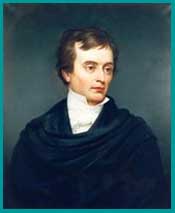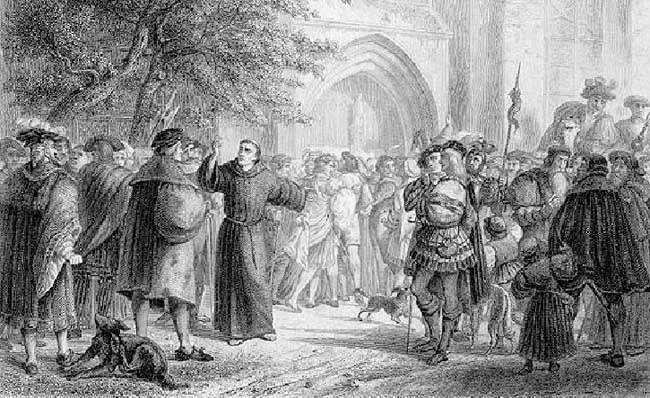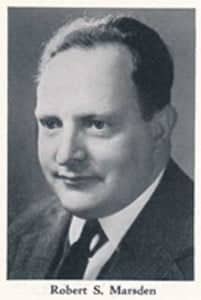 Lord, Give Us Giants!
Lord, Give Us Giants!
He was one of those men whom you wish had written more. His son, R. J. Breckinridge, was a prolific writer, but John only left us a handful of published works. John Breckinridge was born in Cabell’s Dale, near Lexington, Kentucky, July 4, 1797. John’s father, the Honorable John Breckinridge, had served as Attorney General during the Jefferson administration, but died when John was only nine years old.
Raised by his widowed mother and an older brother, John attended the College of New Jersey, graduating in 1818, but decided against the legal profession in order to prepare for the ministry at Princeton Theological Seminary, attending there from 1819-22. Upon graduation, he was appointed to serve as chaplain in the U.S. Congress, 1822-23, and following that term, was then ordained by the Presbytery of West Lexington on September 10, 1823 and installed as pastor of the Second (McChord) Church in Lexington, Kentucky. This church he served until called in 1826 by the Second Presbyterian Church, in Baltimore, Maryland.
Leaving the pulpit ministry, Rev. Breckinridge served from 1831 to 1836 as Corresponding Secretary for the Board of Education of the Presbyterian Church, U.S.A. From 1836 to 1838, he was Professor of Pastoral Theology and Missionary Instruction at the Princeton Theological Seminary. His wife, Margaret, was the daughter of Dr. Samuel Miller, and she died in 1838. Perhaps her death prompted his resignation from the Princeton faculty, nor did John survive her by many years. His last significant service was as Secretary and General Agent for the PCUSA Board of Foreign Missions, from 1838 to 1840. Leaving that post, he served only briefly as stated supply for a church in New Orleans, Louisiana before declining health forced his retirement, and he died on the same spot where he had been born, in Cabell’s Dale, Kentucky, on August 4, 1841, at the age of forty-four. One of the last things that he said before his death was—”I am a poor sinner who have worked hard, and had constantly before my mind one great object—the conversion of the world.”
During Rev. Breckinridge’s years with the Board of Education, he oversaw the publication of a series of Annuals, volumes comprised of collected essays. These volumes appear to be quite rare and the PCA Historical Center was blessed to locate a copy of the fourth volume, published in 1835. The full title of this work isThe Annual of the Board of Education of the Presbyterian Church in the United States: A New Year’s Offering for 1835.
Rev. Breckinridge writes a brief introduction for this volume, the larger portion of which follows [emphasis added]:—
ADDRESS TO THE CANDIDATES OF THE BOARD. (1834)
. . . In the present crisis of all things, human and divine, it is unspeakably important for American youth to know what heaven and earth expect from them. Candidates for such an office, in such an age, and such a country, can no longer be ordinary men. The position is one full of peril to themselves, and of calamity to the church and world,—if not occupied to the entire measure of its advantages and its distinction. The very highest attainments in piety, are now absolutely indispensable. He, who aims below this standing, cannot be a Christian in any age; but in this great conjecture, no man is fit to be minister who does not reach it.
It has often been said, this is an age of action. Those who are already in the field, and will not be efficient, must die off in their fearful lethargy. But to bring new sluggards into the ministry, and especially to put the treasure of the church in requisition, in order to do it, were indeed the gratuity of sin and folly,—”the superfluity of naughtiness.” “He that sleepeth in harvest is a son that causeth shame.” The harvest of the earth is ripe; and its boundless fields wave before us, and call on us to thrust in the sickle and reap. We must have more enterprise, more self-devotion, more of the foreign missionary spirit, or our Boards of Education will sink into contempt. Unless our young men awake, and arise to the greatness of their destiny and office, the world will outrun the church in enterprise, intrepidity, and public spirit. The church is now passing into the relation of great institutions and little men. May the days of men, yea, of giants, in God’s service, revisit the earth in your consecrated persons! Let it not be our shame, and the world’s affliction, that we have contributed to bring you into the sacred office.
With mingled hope, and fears, and with many supplications, and tears, and labors for you, I am your friend and fellow-servant,
JOHN BRECKINRIDGE,
EDUCATION ROOMS,
Philadelphia, Nov. 20th, 1834.
PUBLISHED WORKS BY THE REV. JOHN BRECKINRIDGE (with links to digital editions):—
“Introductory address” to Volume 1 (1832) of the series, The Annual of the Board of Education of the Presbyterian Church in the United States.
An address, delivered July 15, 1835, before the Eucleian and Philomathean societies of the University of the city of New York (1836).
Controversy between the Rev. John Hughes, of the Roman Catholic Church, and the Rev. John Breckinridge, of the Presbyterian Church : relative to the existing differences in the Roman Catholic and Protestant religions (1833).
Also authored by John Hughes [1797-1864], and John Breckinridge:—
A discussion of the question, Is the Roman Catholic religion, in any or in all its principles or doctrines, inimical to civil or religious liberty? And of the question, Is the Presbyterian religion, in any or in all its principles or doctrines, inimical to civil or religious liberty? (1836).
RELATED:
A Memorial of Mrs. Margaret Breckinridge (1839) – by Archibald Alexander.
[emphasis added]
 A lot of Protestants, when hearing of this incident of the nailing of ninety-five theses, think that they were ringing endorsements of Protestant theology. In reality, they were more Roman Catholic than Protestant. There is no protest against the Pope and the Roman Catholic church, or any of her doctrines, not even against indulgences. These theses were silent about justification by faith alone. They were primarily opposed to the abuse of indulgences.
A lot of Protestants, when hearing of this incident of the nailing of ninety-five theses, think that they were ringing endorsements of Protestant theology. In reality, they were more Roman Catholic than Protestant. There is no protest against the Pope and the Roman Catholic church, or any of her doctrines, not even against indulgences. These theses were silent about justification by faith alone. They were primarily opposed to the abuse of indulgences.

